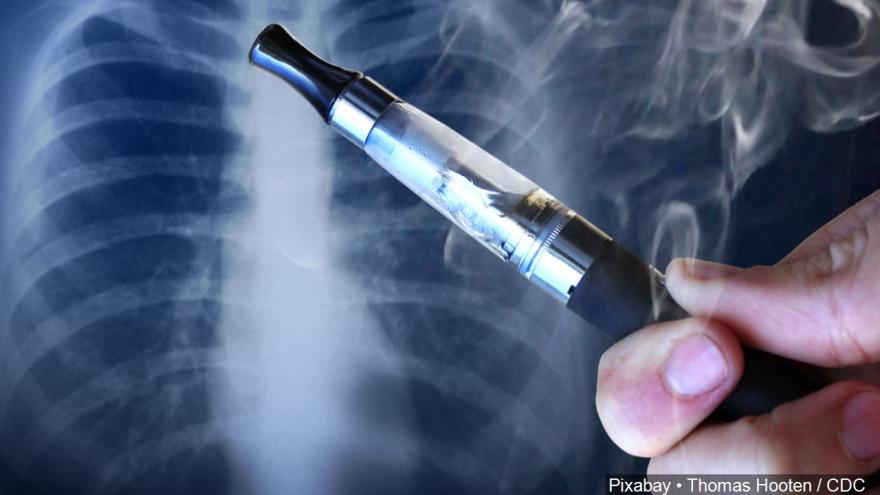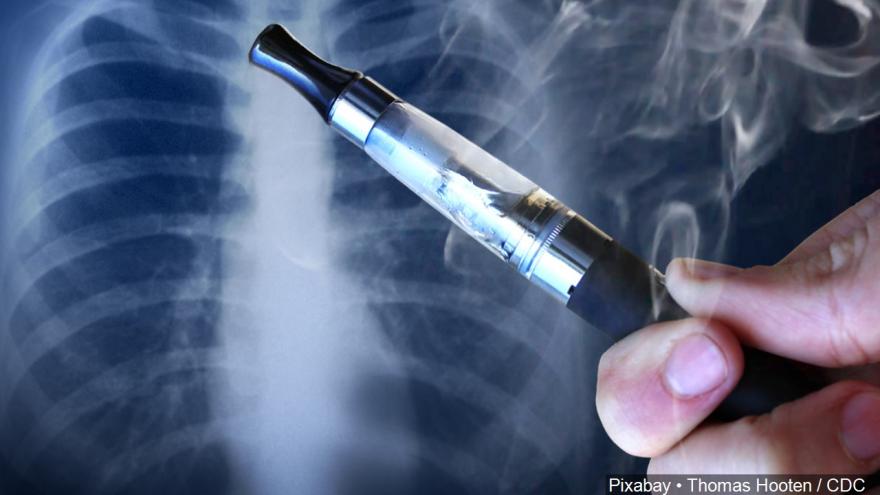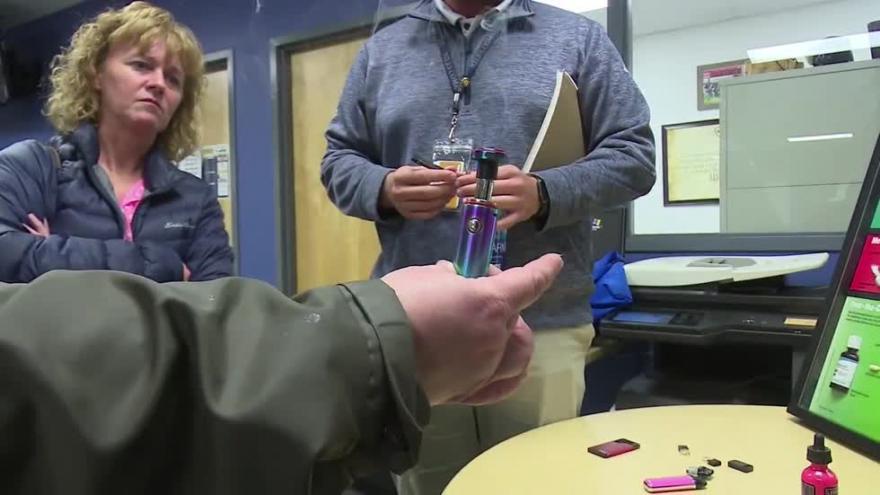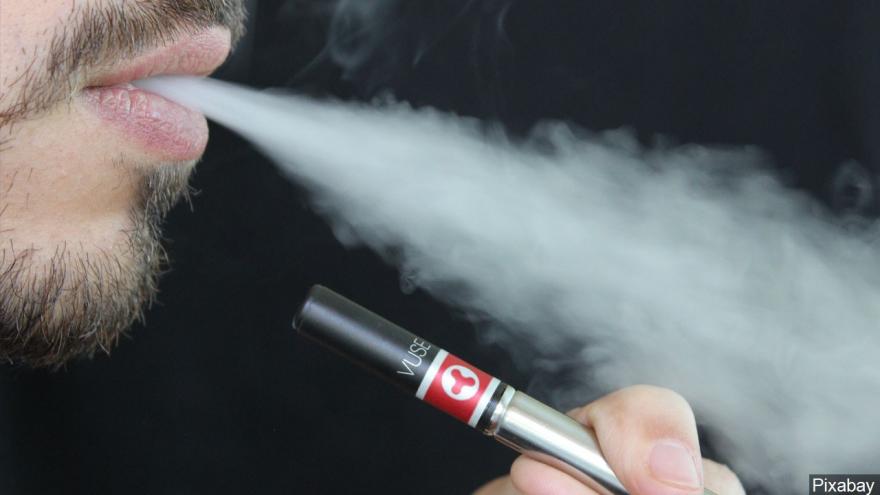See Also
-
 US raises legal age to buy cigarettes, vapes to 21
US raises legal age to buy cigarettes, vapes to 21
-
 Teen vaping of marijuana is on the rise, survey finds
Teen vaping of marijuana is on the rise, survey finds
-
 More clues point to chemical compound in US vaping illnesses
More clues point to chemical compound in US vaping illnesses
-
 Michigan bans Marijuana vaping products until further testing
Michigan bans Marijuana vaping products until further testing
-
 Niles Community Schools hosts vaping forum
Niles Community Schools hosts vaping forum
-
 Health department reports two more deaths related to vaping in Indiana
Health department reports two more deaths related to vaping in Indiana
BERRIEN COUNTY, Mich.—With flavors like bubble gum and mint and a design mirroring a USB drive, vaping products made their way into middle and high schools across the nation this year in a trend that’s reminiscent of the growth of tobacco smokers years ago.
A flavor issue
“I think it’s a problem for every district right now, across the board in Berrien County,” said Kelly Laesch, who works for the Berrien County Sheriff’s Office.
In November, the Berrien County Health Department estimated that about 25% of high school students in the county used vaping products during the last school year.
“We expect that to double,” said Public Health and Prevention Supervisor for the Berrien County Health Department Lisa Peeples-Hurst.
In response to an increased national worry over vaping-products, officials banned vaping in schools and even expelled students over the issue.
Local activists called for regulations and bans of the increasingly popular activity.
“E-cigarettes are not regulated at all. They can put anything in there and we don’t know, they don’t have to tell us,” said Sandi Pontius, a representative for the Smoke Free St. Joe Coalition.
In October, calls for a flavored-vaping product ban were heard in Michigan when Governor Gretchen Whitmer signed a measure prohibiting the sales of characterizing flavors like cotton candy, after reports surfaced linking youth vaping with flavored cartridges.
However, the ban did not last long. A judge blocked it, saying it may force adults to return to smoking more harmful tobacco products and hurt businesses.
As the year comes to a close, new federal laws are aiming to curb youth vaping on a national level.
“We can’t allow people to get sick and we can’t have our youth be so affected,” said President Donald Trump in September during a call-to-action to address youth vaping.
On December 20, the Trump administration signed legislation to amend the Federal Food, Drug and Cosmetic Act to prohibit the sale of tobacco products to anyone under the age of 21, according to the FDA.
But advocates are asking for more.
The president of the Campaign for Tobacco-Free Kids said that raising the tobacco age to 21 is a positive step, but it is not a substitute for prohibiting the flavored e-cigarettes that are luring and addicting our kids.
Local officials across Michiana are divided on whether or not a flavored ban is what’s needed to curb youth vaping.
Peeples-Hurst said that students who are going to vape, will, and they will use the flavors that are available to them but agrees the ban could be a step in the right direction.
“A ban would send a strong message to kids that this is something you shouldn’t do,” Peeples-Hurst said.
A vitamin E acetate issue
Nationally, an annual Monitoring the Future survey released in early December shows that just over 20% of 12th graders reported vaping marijuana in the past year.
As of December 17, a total of 2,506 people across all 50 states have been hospitalized for vaping-related illness or injury, with many cases found to have been involving vitamin E acetate, an additive in many THC-containing vape products.
Fifty-four vaping-related deaths were reported in 27 states, with victims as young as 17-years-old, according to the CDC.
Hospitalized patients reported using over 150 different THC-containing product brands, the CDC said. Dank Vapes, a group of largely counterfeit THC-containing products, was the most commonly reported brand.
The state of Michigan in November banned the sale of THC-containing vape products until they could test them for the presence of vitamin E acetate.
Officials said that more research is still need to understand the health effects of the chemicals in vaping products, and in the meantime, the CDC and FDA recommend that people not use e-cigarettes that contain THC.
Researchers continue to investigate the problems associated with e-cigarettes and vaping but CDC officials said that injury cases are declining as 2019 comes to an end.














